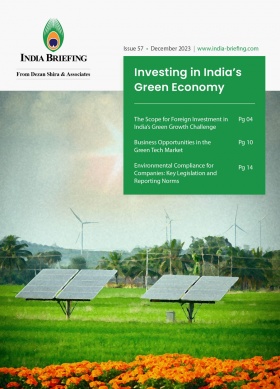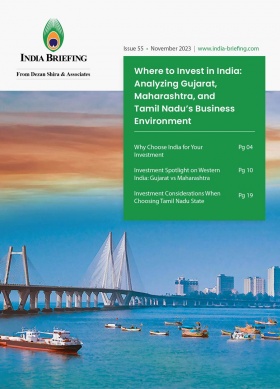PLI Scheme for India’s Automotive Sector Amended and Extended by One Year
India’s PLI Scheme for the automotive sector has been extended by a year as applicants require more time to meet the eligibility provisions. The first round of incentives will be disbursed in FY 2024-25 per the government in a recent announcement, and after much delay. Only Tata Motors, Ola Electric, and Mahindra & Mahindra have met key domestic value addition criteria.
India’s Ministry of Heavy Industries has officially extended the tenure of the Production Linked Incentive (PLI) Scheme for the Automobile and Auto Components Industry through a Gazette Notification released December 29, 2023. The extension, approved by the Empowered Group of Secretaries (EGoS), comes with partial amendments to the scheme and its guidelines. Per the government, the modifications will enhance clarity and flexibility within the scheme.
Amendments to the PLI Scheme for the Automobile and Auto Components Industry
Tenure and period of incentive
According to the revised scheme, the PLI incentive will now be applicable for a continuous period of five financial years, commencing from the fiscal year 2023-24. The disbursement of the incentive is scheduled for the subsequent financial year, April 1, 2024 to March 31, 2025.
However, it is emphasized that an approved applicant can avail benefits for a maximum of five consecutive financial years, concluding with the fiscal year ending on March 31, 2028 (FY28).
In addition, the amendments outline that if an approved company falls short of meeting the threshold for an increase in Determined Sales Value over the initial year’s threshold, it will not receive any incentive for that specific year. Nevertheless, eligibility for benefits can be retained in the following year if the company fulfills the threshold criteria based on a 10 percent year-on-year growth over the initial year’s threshold.
This provision aims to ensure a level playing field for all approved companies, including both existing automotive and new non-automotive investor companies. It also serves to safeguard approved applicants who chose to front-load their investments, protecting them from the uncertainties of market demand conditions in the subsequent years of the scheme.
Increase in budget outlay
Furthermore, the amendment incorporates changes to the incentive outlay table, with the total indicative incentive now amounting to INR 259.38 billion (approx. US$3.11 billion).
|
Applicable incentive (Financial year) |
Disbursement of incentive (Financial year) |
Total indicative incentive
|
|
2023-24 |
2024-25 |
INR 6.04 billion |
|
2024-25 |
2025-26 |
INR 31.5 billion |
|
2025-26 |
2026-27 |
INR 59.25 billion |
|
2026-27 |
2027-28 |
INR 71.99 billion |
|
2027-28 |
2028-29 |
INR 90.60 billion |
|
Total |
INR 259.38 billion |
|
Disbursal of first batch of incentives
The government will commence disbursing PLI incentives for automobiles and auto components starting from FY 2025.
While the announcement brings clarity and assurance to the 67 applicants of the scheme, the delayed distribution of incentives may be perceived as a setback for domestic automakers Tata Motors and Mahindra & Mahindra. Both companies have received Domestic Value Addition (DVA) certifications from the government for electric vehicles in the commercial and passenger vehicle segments. The sales of electric passenger vehicles have experienced a plateau in recent months, leading to increased discounts from major Original Equipment Manufacturers (OEMs). Nevertheless, the government anticipates the sale of 100,000 electric passenger vehicles in the current fiscal year.
Localization approvals
Among the 67 automotive component manufacturers and 18 OEMs selected as beneficiaries, only Tata Motors and Mahindra & Mahindra have obtained localization certifications from the government-run testing agency ARAI (Automotive Research Institute of India) for various products featuring electric powertrains. In fact, Tata Motors was the first to receive the PLI-AUTO certificate and CMVR type approval certificates from ARAI for their 12-meter fully built bus in the M3 category. The company has also earned recognition for their groundbreaking green hydrogen fuel cell Starbus 4/12 FCEV model and its variants.
In the electric two-wheeler segment, Ola Electric is the only company to receive necessary certification having met the stringent eligibility requirements of minimum 50 percent DVA.
Read: EV Sector in India: Production Capacity, Government Targets, and Market Performance
Challenges for PLI beneficiaries
Incentives under the PLI scheme for the auto sector will be granted based on actual sales evidence and audits of investments made in advanced automotive technologies. However, a considerable number of companies have faced challenges in submitting the necessary documentation, which requires endorsement by statutory auditors. This has resulted from complexities in the application process, preventing timely eligibility for certifications.
In August last year, it was reported by Livemint that the Ministry of Heavy Industries (MHI) was considering combining the compliance standards required for the FAME-II program and the PLI scheme for advanced automotive technologies.
The proposed integration would streamline processes for both automotive and auto parts manufacturers and boost manufacturing of hybrid and electric vehicles. Currently, these entities are required to obtain separate certifications from government-affiliated testing agencies to qualify for incentives under FAME-II and the PLI scheme for the automotive sector.
About Us
India Briefing is produced by Dezan Shira & Associates. The firm assists foreign investors throughout Asia from offices across the world, including in Delhi and Mumbai. Readers may write to india@dezshira.com for more support on doing business in India.
We also maintain offices or have alliance partners assisting foreign investors in Indonesia, Singapore, Vietnam, Philippines, Malaysia, Thailand, Italy, Germany, and the United States, in addition to practices in Bangladesh and Russia.
- Previous Article India-Malaysia Economic Partnership: Challenges, Prospects, and Strategic Collaborations
- Next Article EPFO Extends Deadline for Employers in India to Upload Wage Details for Higher Pensions by May 31, 2024








